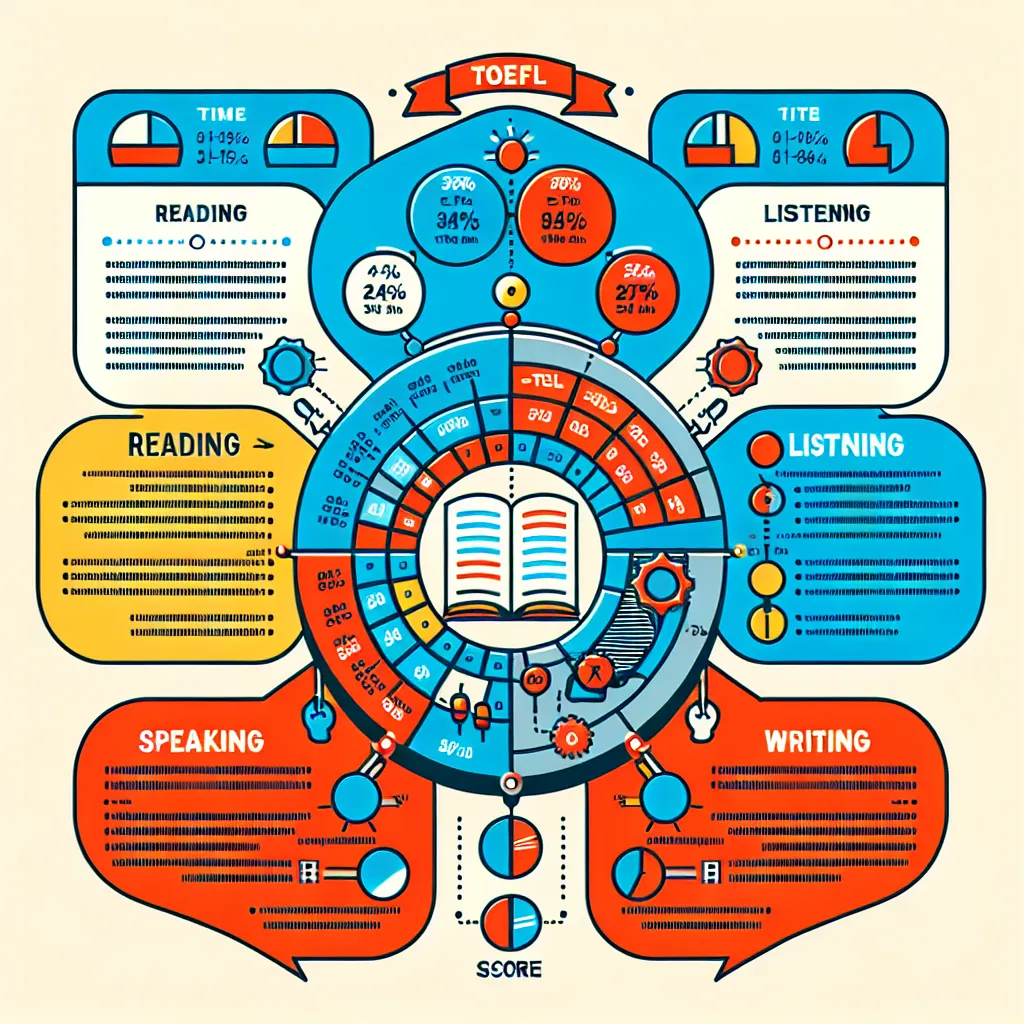The Test of English as a Foreign Language, commonly known as TOEFL, is a standardized test designed to measure the English language proficiency of non-native speakers. It is widely recognized and accepted by thousands of institutions worldwide, making it a crucial exam for students and professionals alike who wish to study or work in English-speaking countries.
 TOEFL Exam Overview
TOEFL Exam Overview
Understanding the TOEFL Exam
What is TOEFL?
TOEFL stands for Test of English as a Foreign Language. It is administered by the Educational Testing Service (ETS) and is designed to evaluate the English language skills of non-native speakers. The test assesses four key language skills:
- Reading
- Listening
- Speaking
- Writing
These skills are evaluated in an academic context, simulating real-life situations that students might encounter in English-speaking educational environments.
Types of TOEFL Tests
There are two main versions of the TOEFL test:
-
TOEFL iBT (Internet-Based Test): This is the most common and widely accepted version. It is taken on a computer and is available at authorized test centers worldwide.
-
TOEFL Paper-delivered Test: This version is offered in areas where internet-based testing is not available. It does not include a speaking section.
Why is TOEFL Important?
Academic Admission
One of the primary reasons TOEFL is important is its role in college and university admissions. Many English-speaking institutions require TOEFL scores as part of their application process for international students. A good TOEFL score can:
- Demonstrate your ability to understand and use English in an academic setting
- Increase your chances of being accepted into your desired program
- Help you qualify for scholarships or financial aid opportunities
Career Advancement
TOEFL is not just for students. Many professionals take the TOEFL test to:
- Enhance their resume for international job opportunities
- Meet language requirements for professional certifications
- Demonstrate English proficiency for work visa applications
Immigration Purposes
Some countries consider TOEFL scores as part of their immigration process. A good TOEFL score can:
- Support your visa application
- Demonstrate your ability to integrate into an English-speaking society
Personal Development
Beyond its official uses, preparing for and taking the TOEFL can:
- Improve your overall English language skills
- Boost your confidence in using English in various contexts
- Prepare you for studying or working in an English-speaking environment
TOEFL Exam Structure
Understanding the structure of the TOEFL exam is crucial for effective preparation. Let’s break down each section:
Reading Section
- Duration: 54-72 minutes
- Questions: 30-40
- Purpose: Measures your ability to understand academic texts
Listening Section
- Duration: 41-57 minutes
- Questions: 28-39
- Purpose: Assesses your ability to understand spoken English in academic settings
Speaking Section
- Duration: 17 minutes
- Tasks: 4
- Purpose: Evaluates your ability to speak English effectively
Writing Section
- Duration: 50 minutes
- Tasks: 2
- Purpose: Measures your ability to write in English in an academic environment
Preparing for TOEFL
Effective preparation is key to success in the TOEFL exam. Here are some strategies:
- Assess your current English level
- Set realistic goals and create a study schedule
- Use official TOEFL preparation materials
- Practice each section regularly
- Improve your general English skills through reading, listening, speaking, and writing
- Take practice tests to familiarize yourself with the format and timing
Learn more about TOEFL preparation strategies
TOEFL Scoring
TOEFL iBT scores range from 0 to 120, with each section scored from 0 to 30. Understanding the scoring system can help you set realistic goals:
- Reading: 0-30
- Listening: 0-30
- Speaking: 0-30
- Writing: 0-30
The total score is the sum of the four section scores. Many institutions have minimum score requirements, which can vary depending on the program and level of study.
Find out more about TOEFL scoring and what your score means
Conclusion
The TOEFL exam is a vital tool for non-native English speakers looking to prove their language proficiency for academic, professional, or personal reasons. Its importance lies in its wide acceptance and the comprehensive way it assesses English language skills. By understanding what TOEFL is and why it’s important, you can better prepare for the exam and open doors to new opportunities in English-speaking environments.
Whether you’re aiming to study abroad, advance your career, or immigrate to an English-speaking country, a good TOEFL score can be a significant asset. Start your TOEFL journey today, and take the first step towards achieving your goals in the global, English-speaking world.




